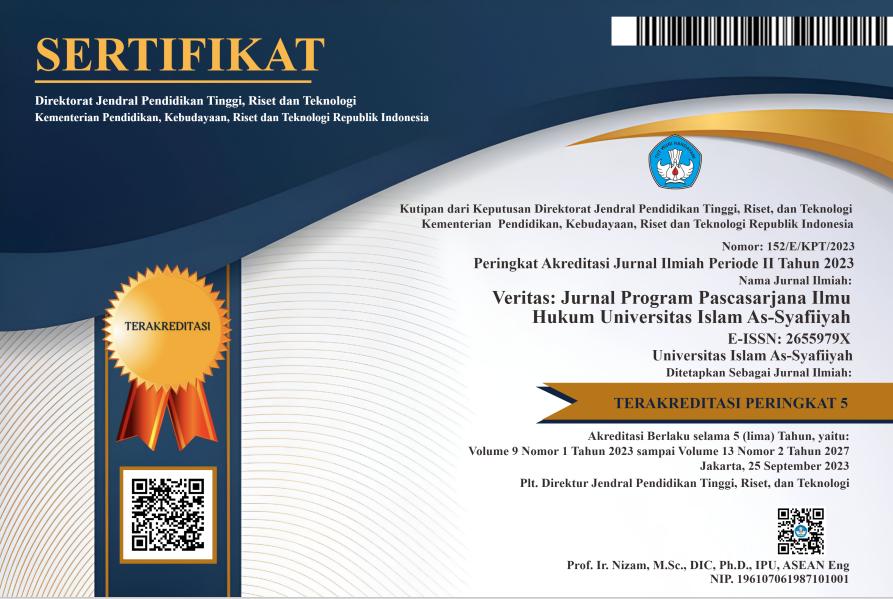Perbandingan Pemilihan Kepala Daerah Di Indonesia (Era Orde Baru, Pasca Orde Baru, Dan Mahkamah Konstitusi Tentang Pemilihan Kepala Daerah)
Abstract
The election of regional head in Indonesia which known as Pemilihan Kepala Daerah (PILKADA) is a manifestation of the realization of democracy at the local level and the mandate of the third paragraph of the constitution preamble, Article 1 paragraph (2), and Article 18 paragraph (4) of the 1945 Constitution of the Republic of Indonesia. In its implementation, PILKADA regulated by several provisions of laws and regulations concerning Regional Government and several decisions of the Constitutional Court/ Supreme Court. This research aims to determine the comparison of regional head elections in Indonesia with several research problem formulations. The first is about how regional heads are elected in Indonesia based on the Law on Regional Government and the Decision of the Constitutional Court. The second is related to whether the election has already reached a democratic level at the local region in Indonesia. So this research results in the conclusion that regional head elections using a system like Law Number 5 of 1974 distance democracy at the local level, because the governors, regents and mayors who are appointed do not represent the local people's aspirations. Direct regional head elections and the new paradigm in the form of individual nominations and single candidates have had a positive impact on democratization at the local level, and regional election regulations have increasingly encouraged efforts to develop democratic values. However, there are still many negative impacts which, if not immediately corrected, threaten to thwart democratization efforts at the local level.





